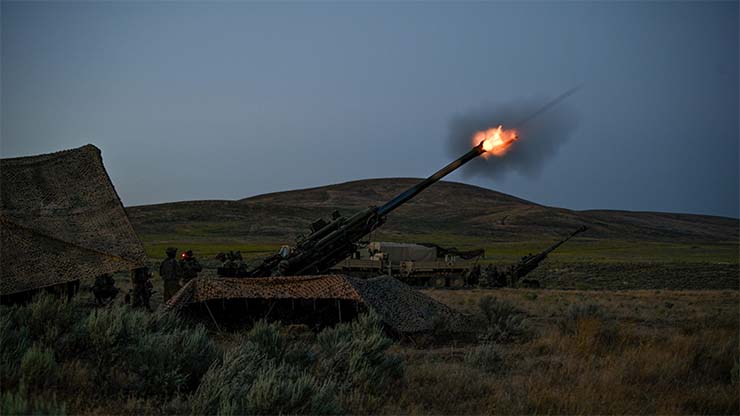
Washington: US Army’s top acquisition official said he was “not uncomfortable” with the state of Army munitions stockpiles in the wake of months of arms transfers to Ukraine, but said the Army is doggedly working with industry — including potentially offering multi-year procurement contracts — to boost the production of certain weapons systems to keep Kyiv armed and the US well stocked.
Doug Bush, assistant secretary of the Army for acquisition, logistics and technology, told reporters that he spends the bulk of his time working to expand US production of 155mm artillery, High Mobility Artillery Rocket System (HIMARS) launchers, Guided Multiple Launch Rocket Systems (GMLRS) or Javelins that are so critical to Ukraine’s recent successes against Russia. Specifically, Bush said the Army was aiming to “dramatically increase” production of GMLRS and is “doubling or more than doubling” production rates for HIMARS launchers.
To accomplish that, Bush said, the Army is leaning on congressional support, and also on the defence industry. For that latter, Bush said the Army — and the Pentagon — was considering the use of multi-year procurement contracts that could help assuage contractor fears of unstable markets for the systems.
Bush’s comments came after the Pentagon’s chief weapons buyer, Bill LaPlante, signalled the Defence Department was open to multi-year arrangements.
Since Russia invaded Ukraine on February 24, the Defence Department has sent $14.5 billion in military aid to the Ukrainians, drawn from US stocks and in direct orders from contractors. The Pentagon has so far sent 8,500 Javelins, 1,600 Stingers, 16 HIMARS and about 807,000 rounds of 155mm artillery for 126 155mm howitzers, according to a September 8 fact sheet from the Pentagon. The US has also sent GMLRS, the munition for the HIMARS.
The transfer of US inventories of weapons and ammo to Ukraine has raised concerns about the amount left in US stocks. And while Bush said he wasn’t uncomfortable with the Army’s stocks in general, he later dodged a question about whether the Army had enough ammunition if a large-scale conflict broke out soon, stating that it’s a question for the chief of staff of the Army and secretary of the Army.
Bush, instead, focused on how he said the Army was working to replenish what’s been transferred, and who he said could help while the Army ramps up.








